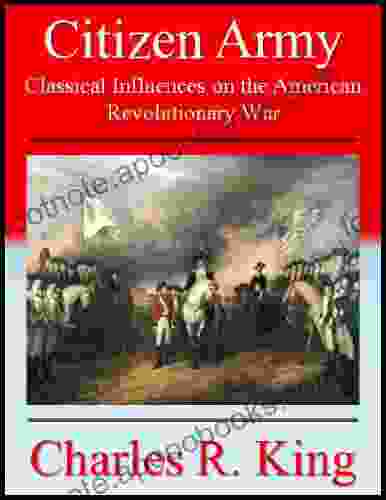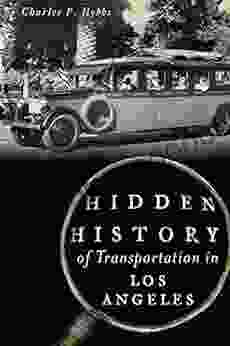Unveiling the Classical Roots of America's Independence
The American Revolutionary War, a pivotal chapter in world history, was not merely a struggle for independence from British rule. It was also a conflict of ideas, a clash between the Enlightenment's ideals of liberty and equality and the traditional structures of monarchy and aristocracy.
4.6 out of 5
| Language | : | English |
| File size | : | 516 KB |
| Text-to-Speech | : | Enabled |
| Screen Reader | : | Supported |
| Enhanced typesetting | : | Enabled |
| Word Wise | : | Enabled |
| Print length | : | 17 pages |
| Lending | : | Enabled |
In this clash of ideologies, classical antiquity played a surprisingly significant role. The Founding Fathers, deeply immersed in the writings and values of Greece and Rome, drew inspiration from these ancient civilizations for their revolutionary ideals and the principles that would shape the new American nation.
Architecture: Classicism as a Statement of Power and Ideals
The influence of classical architecture on the American Revolutionary War is evident in the designs of public buildings and monuments.

Inspired by the imposing temples and civic structures of ancient Greece and Rome, buildings like Independence Hall in Philadelphia and the Virginia State Capitol in Richmond embodied the ideals of democracy, civic virtue, and the rule of law.
The classical-style columns, pediments, and domes of these edifices conveyed a sense of permanence and authority, reflecting the Founders' aspiration for a stable and enduring republic.
Politics: Republicanism and the Lessons of Ancient History
The political thought of the Founding Fathers was profoundly shaped by their study of classical history and philosophy.
The writings of Aristotle, Plato, and Cicero provided them with models for republican government, emphasizing the importance of civic participation, the rule of law, and the balance of powers.
Concepts such as "virtue," "honor," and "patriotism" were deeply rooted in classical thought and found expression in the Declaration of Independence and the Constitution.
Philosophy: Enlightenment Ideas and the Pursuit of Liberty
The American Revolution was also a product of the Enlightenment, a philosophical movement that emphasized reason, individualism, and the pursuit of happiness.
Classical philosophers like Socrates, Seneca, and Diogenes influenced the Founders' belief in the inherent rights and liberties of individuals.
The concept of natural rights, enshrined in the Declaration of Independence, was directly inspired by Stoic philosophy's emphasis on virtue and the dignity of the individual.
Culture: Classics as a Foundation for Education and Society
Classical literature and education played a vital role in shaping the cultural landscape of Revolutionary America.
Leading schools and colleges incorporated classical texts into their curricula, instilling in students a deep appreciation for the values and principles of the ancient Greeks and Romans.
Figures from classical mythology and history became symbols of moral virtues and the struggle for freedom.
A Tapestry of Classical Influences: Shaping a Revolutionary Nation
The American Revolutionary War was not simply a break from the past but a culmination of ideas and values that had been shaped by centuries of classical influence.
From architecture to politics, philosophy to culture, the legacy of Greece and Rome permeated the fabric of the American Revolution.
Understanding these classical influences provides a deeper appreciation of the motivations, ideals, and principles that gave birth to the United States of America.

























































































